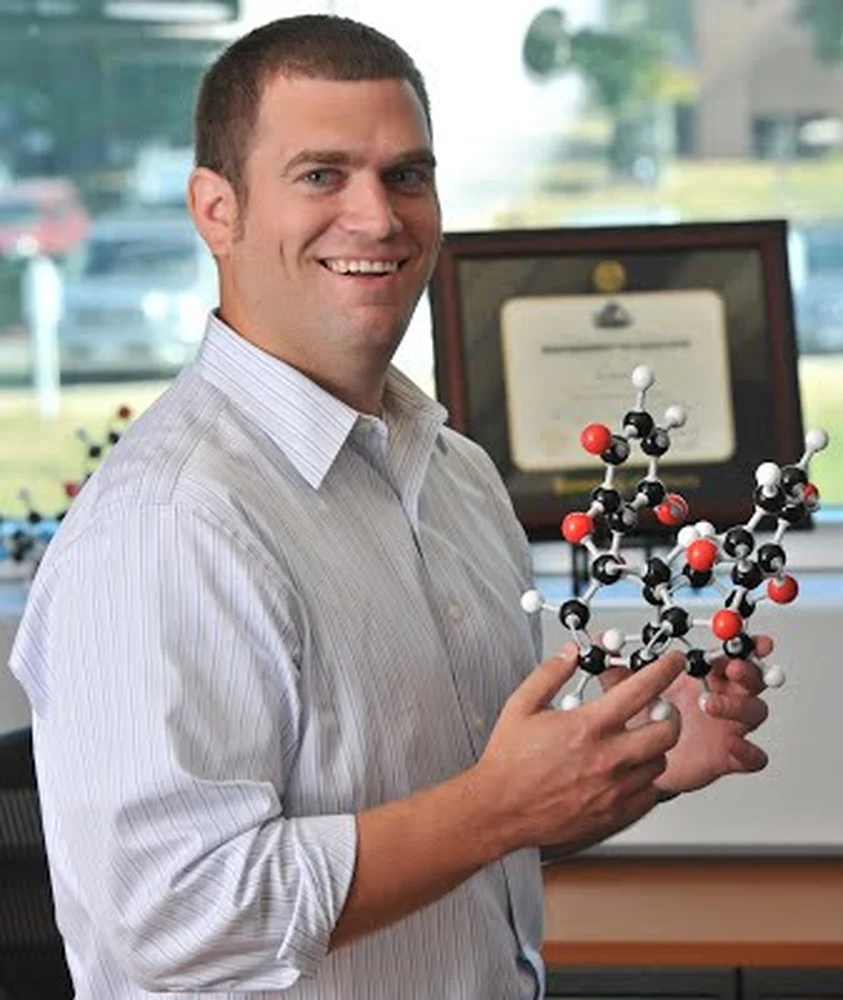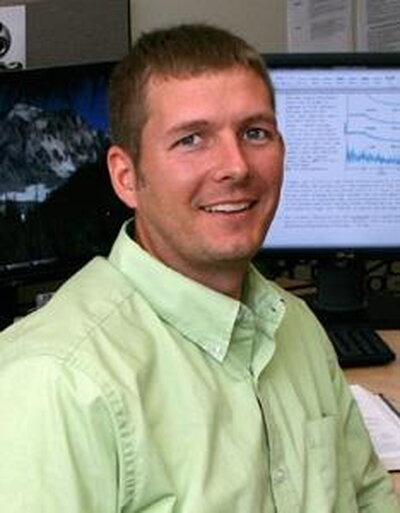
With a research team of exclusively undergraduate students, Alumnus Jay Wackerly, (PhD, ’08, Moore), an associate professor of chemistry at Central College in Iowa, has created and named a new molecule, ‘cambiarene,’ demonstrating its ability to grab on to specifically-targeted small molecules. They hope to build on this research by taking these small molecules and delivering them to a desired location, known as molecular transport, Wackerly said.

He has collaborated in this research with another alumnus, Scott Shaw (PhD, ‘08, Gewirth), an associate professor at the University of Iowa.
Wackerly and Shaw met and became friends as graduate students at the University of Illinois. Wackerly said Shaw and one of his students ran the cyclic voltammetry analysis for this research.
“When we both ended up in Iowa and I needed help with cyclic voltammetry, we started a bit of a mini collaboration,” said Wackerly, who was the primary author of their paper that was published in Chemistry – A European Journal and was titled “Cambiarenes: Single-Step Synthesis and Selective Zwitterion Binding of a Clip-Shaped Macrocycle with a Redox-Active Core.”
Elaborating on their work, Wackerly said they used pyridine-N-oxide as the guest molecule of this supramolecular system as an analog of the anti-cancer drug tirapazamine.
“We think this system could be potentially used for targeted drug delivery,” he explained. “What’s unique about our supramolecular host, which we call cambiarene from the Latin ‘cambiare’ meaning ‘to change,’ is that it undergoes an electronic change upon reduction. We postulate that this sensitivity to redox conditions will allow our next generation cambiarenes to bind guests, like tirapazamine, in the oxidized form, then upon reduction, release the guest allowing for molecular transport."
While the research team used targeted drug delivery as its guiding principle in this work, Wackerly explained that there are many other applications for which molecular transport can be effective.
“In this paper, we wanted to lay the groundwork of synthesis and host-guest binding properties of this new supramolecular system,” he said.
Wackerly credits his PhD advisor, Jeffrey Moore, the Stanley O. Ikenberry Endowed Chair, professor of chemistry, Howard Hughes Medical Institute Professor and director of the Beckman Institute, with being very supportive of his desire to have a career teaching undergraduates, giving him additional opportunities while a PhD candidate in the Department of Chemistry.
He said the opportunities he was afforded included giving undergraduate lectures, guiding undergraduate research, and taking Teaching College, all in addition to his regular graduate work.
Wackerly went on to do his post-doctoral work at Colby College where, he said, he confirmed that his current career path was what he wanted. He was a visiting assistant professor at Colorado College from 2010 to 2011 before he began his tenure-line position at Central in 2011.
“I think that performing high-quality, publishable research is a critical component of a true education in the chemical sciences,” he said.
In his nine years at Central, he said he has supervised over 30 undergraduates, and all of the work in his lab is performed by undergraduates.